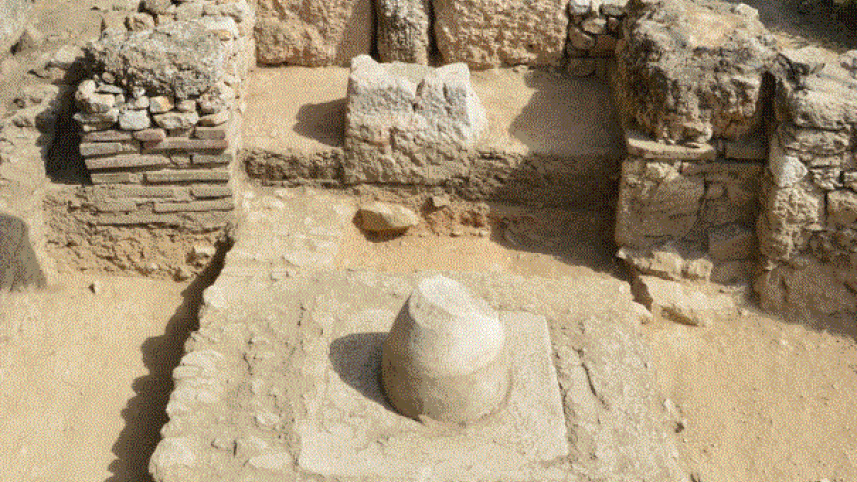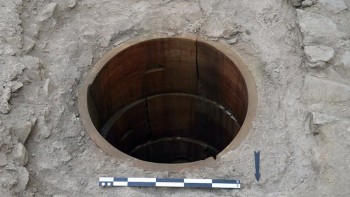Archaeologists in Athens have discovered what they believe to be the the oldest Oracle of Apollo. The archeologists were led by Dr. Jutta Stroszeck, on behalf of the German Archaeological Institute at Athens. Dr. Jutta Stroszeck, publish an article about excavation “Der Kerameikos in Athen. Geschichte, Bauten und Denkmäler im archäologischen Park”.



Kerameikos located to the northwest of the Athens Acropolis (Citadel). The site has been under archaeological excavation since the 19th century when Archaeologists uncovered a marble omphalos (religious stones). According to mythology omphalos means “navel”. In Greek lore, Zeus sent two eagles across the world to meet at its center, the “navel” of the world.
Through this area where archeologist believed they discovered the Oracle, flows the Eridanos river. The Athenias built wells along the river. The Athenians believed that water from river was sacred, and that it was protected by mischievous nymphs who could get upset if the water was mistreated. So, the Athenians would construct sacred oracular wells to appease these figures in their mythology. The well found at Kerameikos is one such well.
Kerameikos was an important hub of activity in Athens. Its main street connected the agora (the main marketplace) of Athens with Plato’s Academy. It included the Athenian potters quarter, and an ancient cemetery. The whole area is a picture frozen in time of the transitions going on in Athens, connecting the city of the living to the city of the dead. Kerameikos was considered an area of high spiritual activity, a center for cultic activity in ancient Athens.



The sanctuary where the oracle to Apollo was found was inside a sanctuary dedicated to both Apollo, and his twin sister Artemis. The well was probably used for what we now call “hydromancy”, a method of divination by means of water. The well would have been a popular place to go before making any major decision, whether it was about simple everyday matters, a request for healing after falling ill, and the sanctuary itself was a place where criminals and fugitives could apply for sanctuary with the gods.
We best remember Athens as a hub for some of the best philosophy and scientific thought of the ancient world. Greats like Socrates and Plato came from Athens and added their voices to the discourse in the agora. But it’s archaeological sites like Kerameikos that paint a truer, fuller picture of the city. Kerameikos was not only a social and spiritual hub for the city, but its main street connected to Plato’s Academy, drawing yet another connection between two worlds. Religion and scientific thought were inextricably entwined in the ancient world, and Kerameikos is proof of that.
Sources of the news:
http://www.haaretz.com/jewish/archaeology/1.723632 rel=”nofollow”
